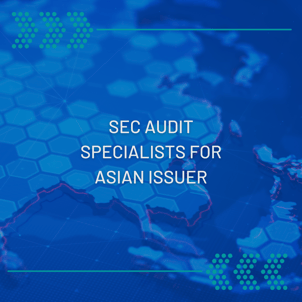July 21, 2021 | by MBP Team
Last week, a flurry of news was made at the inaugural Asia SPAC Management Bootcamp, a virtual conference presented by Marcum Bernstein & Pinchuk LLP (MBP), along with Baker McKenzie.
May 7, 2021 | by Drew Bernstein, Co-Managing Partner, MarcumBP
Carson Block is the most famous short-seller of his generation, known for tome-length, densely researched short reports that eviscerate companies where he believes management is lying and taking shareholders to the cleaners. He is not afraid to use the f-word — “fraud” — in his reports. And as you will discover in this interview, his views on the market are laced with f-bombs and salty stories as well. So, trigger warning, folks: if you are squeamish about looking under the rock that is sometimes Wall Street, this interview may not be for you.
April 15, 2021 | by Drew Bernstein, Co-Managing Partner, MarcumBP
Chinese IPOs had a strong start in the first quarter of 2021, with 24 initial public offerings from Greater China that raised $5.8 billion. According to Renaissance Capital data, that's up by 728% over the $700 million raked in by Chinese names listing on NASDAQ and the New York Stock Exchange in the first quarter of 2020.
March 31, 2021 | by Drew Bernstein, Co-Managing Partner, MarcumBP
In 2020, China dominated the global IPO market as never before. 565 new public companies were born through listings on China’s domestic markets, Hong Kong, and the U.S. exchanges, raking in $133 billion dollars. That is up by 51% from 2019 and compares to $78.2 billion raised by 218 operating companies on the U.S. markets during the same period. While the U.S. still led the world in capital raising last year, that was primarily due to the unprecedented 248 SPAC IPOs that raised $75.5 billion dollars. In 2021, SPAC IPOs based in Asia are taking off as experienced private equity, venture, and hedge fund investors launch their own SPAC initiatives. A SPAC merger creates yet another option for the management teams of companies from Greater China to consider in order to raise capital and obtain public status on an accelerated timeframe.
February 1, 2021 | by Drew Bernstein, Co-Managing Partner, MarcumBP
The U.S. IPO market is off to a rollicking start in 2021, with 114 new listings in the month of January that have raised $36.1 billion. The top performer so far? RLX Technology, the Chinese e-cigarette purveyor that rocketed 146% on the first day's trading, is currently hovering at twice its offering price.
December 3, 2020 | by Drew Bernstein, Co-Managing Partner, MarcumBP
On December 2nd, 2020, the House of Representatives unanimously approved a bill that would bar Chinese companies from trading in the U.S. if their auditors are not subject to inspections by the PCAOB within three years. The "Holding Foreign Companies Accountable Act" was passed by the Senate in May and will now be sent to President Trump to be signed into law.
October 8, 2020 | by Drew Bernstein
Despite a directive from a White House working group that could lead the SEC to close the door to companies whose auditors are not PCAOB-inspected, Chinese companies continued to raise significant amounts of capital on U.S. exchanges in the third quarter of 2020.
June 22, 2020 | by Drew Bernstein
For years I have heard a familiar refrain from American investors: They would love to be able to participate in China’s economic growth, if only they could trust the accuracy of the accounting. Unfortunately, episodic blowups of listed Chinese companies have sown doubts about the reliability of their financial reporting and governance practices. In cases when serious problems emerged, there was limited recourse available to hold management accountable or secure compensation.
May 22, 2020 | by Drew Bernstein
On May 20th, the U.S. Senate passed legislation to force Chinese issuers to comply with inspections by the Public Accounting Oversight Board (PCAOB) and to certify that they are not owned or controlled by the Chinese government.
June 19, 2019 | by Drew Bernstein
As a new “silicon curtain” crashes down between the technological infrastructure of America and some of its allies and China and the countries in its sphere of influence, there has begun to be talk about restricting flows of capital as well as goods between the two nations. Some have fretted that China might dump its holdings of US treasuries in retaliation for escalating tariffs. Other analysts have speculated that U.S. financial institutions might soon be prohibited from investing in securities in mainland China’s state-owned enterprises. And now Senator Marco Rubio has put the nuclear option on the table with a bill and editorial in the Wall Street Journal, “You Can’t Trust a Chinese Audit,” proposing to potentially boot hundreds of Chinese companies off of U.S. stock markets.
.png?width=643&name=Now%20is%20(643%20%C3%97%20159%20px).png)
